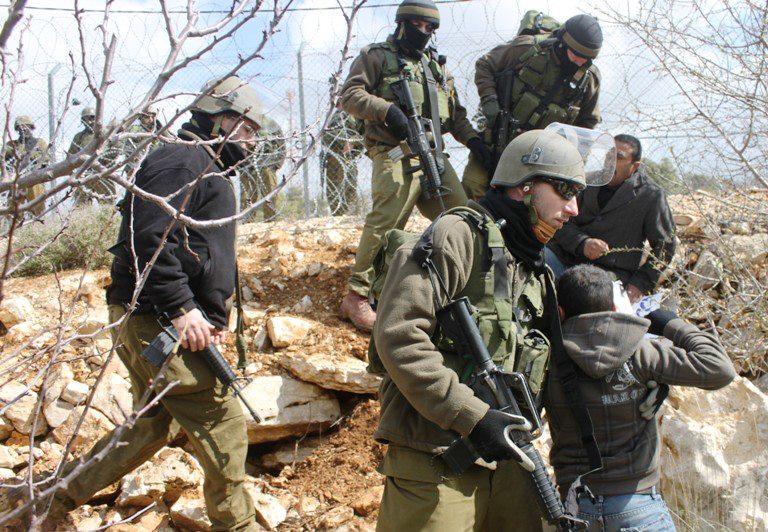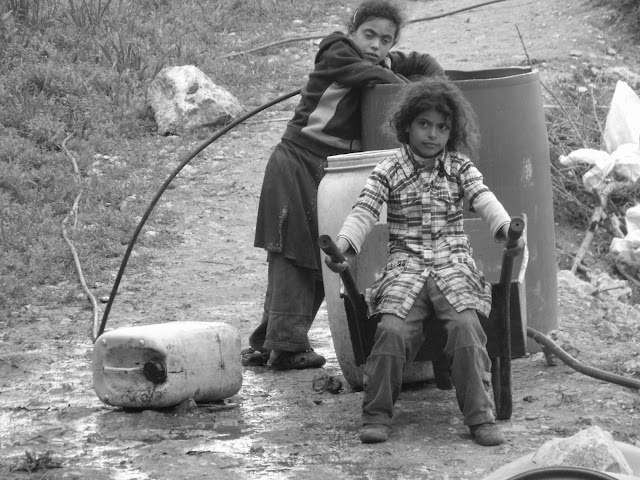Tag: Settlers
-
In photos: Beit Ommar weekly protest
by Younes Arar 17 March 2012 | Beit Ommar Popular Committee The Beit Ommar Popular Committee organized today’s weekly peaceful protest adjacent to Karmei Tzur colony built on the stolen land of Beit Ommar farmers. When we arrived next to the so called security fence surrounding the colony, more than 60 heavily armed Israeli occupation…
-
The strangulation of a village
by Sylvia 10 March 2012 | International Solidarity Movement, West Bank Sheikh Nasri looks resigned as he describes his home as “the most terrorised village in the country”. With 34,000 uprooted trees in the last two years and some 4,800 dunams of land stolen, the village of Al Jab’a has little to smile about. Eighteen…
-
Israeli flags hanged in Yanoun are a reminder of Itamar settler violence
by Ramon Garcia 7 March 2012 | International Solidarity Movement, West Bank The illegal settlement of Itamar, constructed illegally on the land of Aqraba, Awarta, and Beit Furik, has taken a provocative step of incitement in the village of Yanoun, from which Zionists have also stolen land. On 7 March 2o12 illegal settlers entered the…


